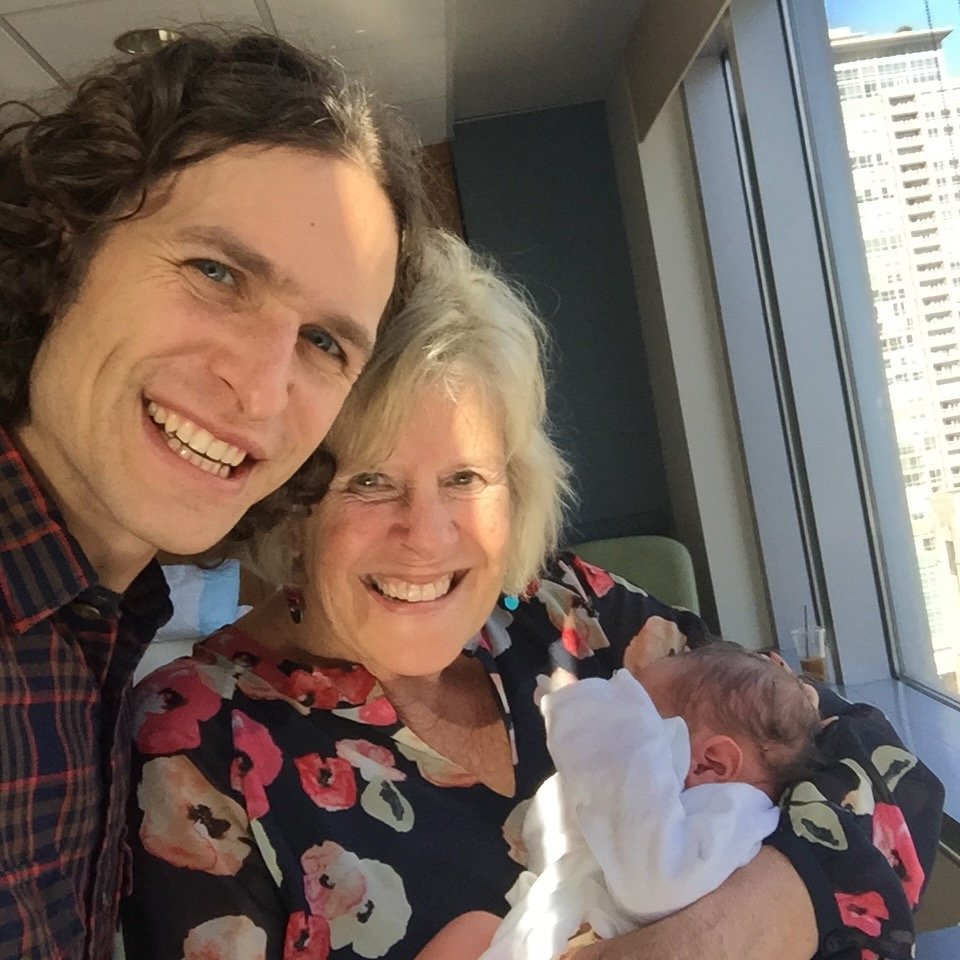Grandmother’s Rules of Procedure
I’m sitting in a Starbucks with a friend. My friend and I are grandmothers. To say this is a role we treasure would be an understatement. As we were sipping and chatting a mutual friend popped in for a caffein infusion after having been denied one during an early morning blood test fast. Sharon is a new grandmother to a six-week-old baby girl. Sharon had just returned from a trip to Denver to visit her precious miracle (and her daughter and son-in-law.) We exchanged newborn anecdotes and the complications of new relationships as grandparents and parents strive to figure out roles in the early days of a baby’s life.
The day my grandson was born
Postpartum depression is real. I recounted how after two weeks at home alone with my newborn daughter, my then husband came home to find me sitting on the sofa drinking a beer, eating a snicker’s bar, and smoking a cigarette as my daughter fussed in her crib. “I don’t think I’m cut out for this,” I wailed.
Grandparents, at least the non-judgmental ones can really be a help. Even if parts of us are dimming, grandparents are perfectly positioned to shine a light for their families, even if it’s only a flashlight. Parenting is fraught with responsibility and anxiety. Once men and women assume that parental yoke of responsibility, they become nearsighted, often able to see only three feet in front of them. But grandparents have the luxury of an aerial view.
“He’ll be fine,” we reassure them.
“She will get the hang of nursing and so will you. It is so worth it.”
“Kids are resilient. He won’t remember this slight next week.”
“She’s just acting out because of the new baby.” “Don’t worry—she’s a lovely girl and will find her own group of friends in school who will appreciate her.”
The grandparent’s experience, if offered without judgement, can guide their child-parent out of the darkness. It’s a valuable role.
My mother died when my daughter was three and my son was nine months, so they never really knew her. My first mother-in-law violated many of the Grandmothers’ Rules of Procedure guidelines. I invited Elaine to stay in my home following the birth of my daughter, and I regretted that decision within hours. In hindsight, I recognize her own anxieties permeated every criticism.
“You shouldn’t nurse her! She’s not gaining weight. She’s not getting enough nourishment.”
Breastfeeding was hard enough but having someone standing over my shoulder admonishing me was brutal.
“I think David has an eating disorder!”
My son was ten at the time. He was and remains a picky eater. I didn’t need her fears thrust in my face; I had enough of my own. I needed her to comfort me, to tell me everything was going to be okay, to hold my baby when I was sleep-deprived from getting up three times each night—not tell me what I was doing wrong.
I concocted a series of Grandmother’s Rules of Procedure in my book, Be Brave. Lose the Beige! Finding Your Sass After Sixty. Here are a few: (1) Shine a light for your kids and provide a perspective on parenting; (2) Be useful; (3) Lightly skirt parental rules/mandates/be indulgent; (4) Don’t play the guilt/victim card with your kids or grandchildren; (5) Keep your mouth shut. Keep your own anxieties and opinions to yourself or share them with friends similarly situated; and last, but far from least, (6) Be an advocate for yourself because grand mothering can be taxing on the body.
Grandmother’s Rules of Procedure
The Be Brave. Lose the Beige Manual of Maxims #31 says, “Following the GRP (Grandmother’s Rules of Procedure) guidelines will sass up your role as grandmother. It’s sooo worth it!


